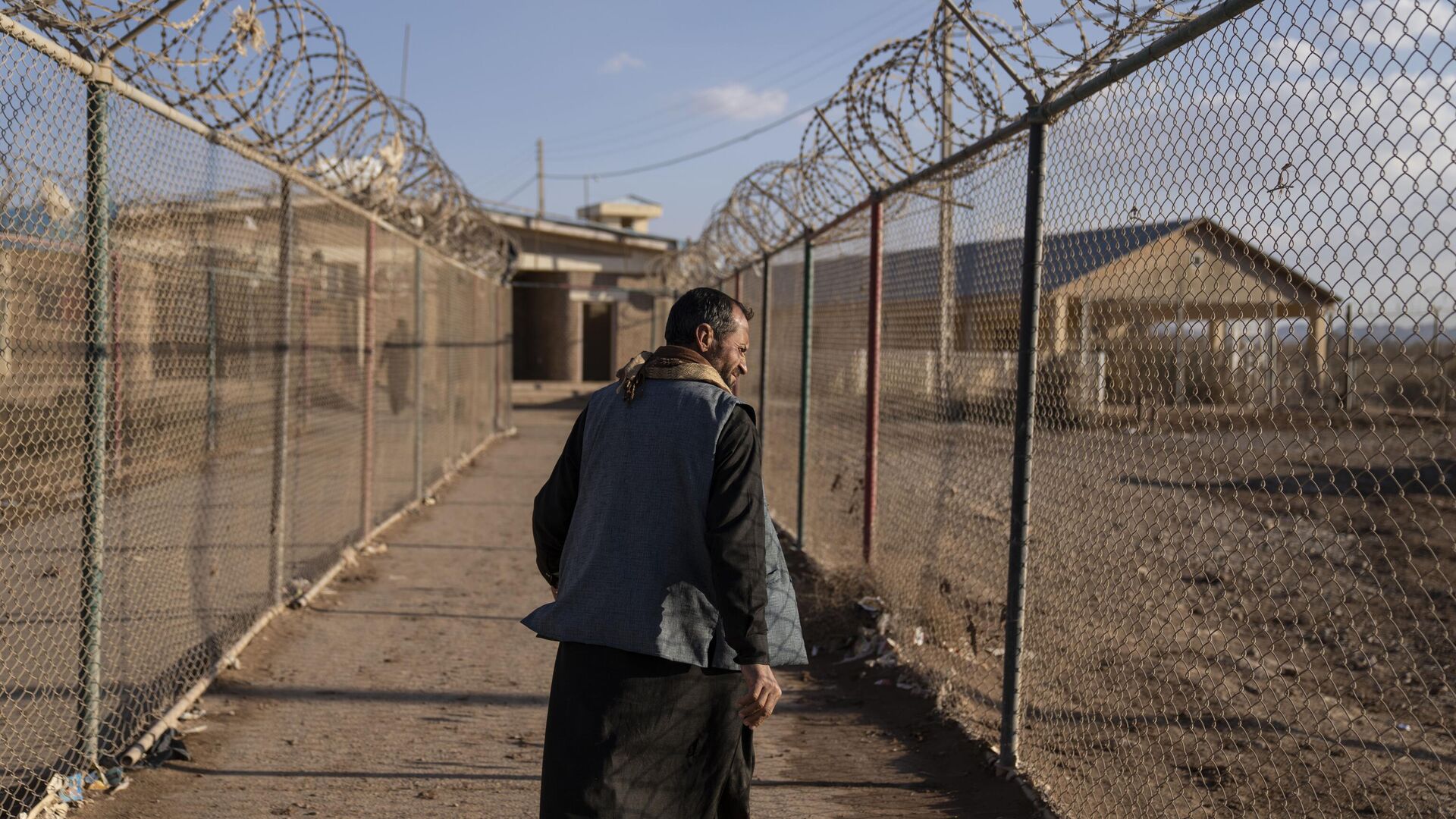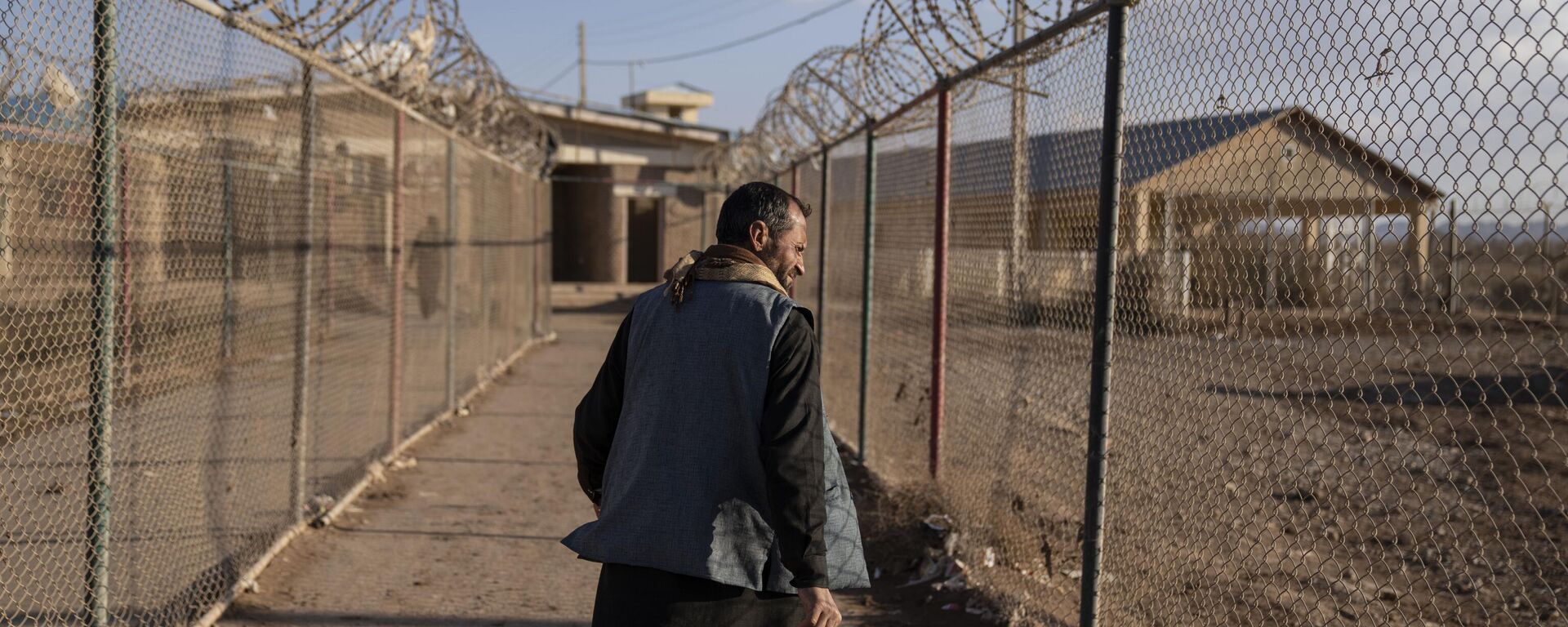https://sputniknews.in/20240630/pakistan-signals-possible-cross-border-strikes-against-afghan-militants-7735712.html
Pakistan Signals Possible Cross-Border Strikes Against Afghan Militants
Pakistan Signals Possible Cross-Border Strikes Against Afghan Militants
Sputnik India
Islamabad is spearheading military strikes targeting Afghan-based militant groups responsible for terrorist activities within its borders.
2024-06-30T16:53+0530
2024-06-30T16:53+0530
2024-06-30T16:53+0530
sputnik opinion
terrorism
babar azam
pakistan
afghanistan
china
tehreek-e-taliban pakistan (ttp)
taliban
shanghai cooperation organisation (sco)
https://cdn1.img.sputniknews.in/img/07e8/02/10/6578580_0:160:3072:1888_1920x0_80_0_0_ae19ac26079e767bc20a856fa88654a2.jpg
Federal Minister for Defense and Security, Mr. Khawaja Asif, in an interview with Samma TV, addressed the possibility of launching cross-border attacks against militants in Afghanistan.He ruled out negotiations with the proscribed militant network, Tehreek-e-Taliban Pakistan* (TTP), stating, "Nothing is more important than Pakistan's territorial integrity, and if terrorists can attack Pakistan from Afghan soil, why should we not retaliate?"He also mentioned that a new military operation called 'Azm-i-Istehkam' is set to be launched to attract foreign investment, secure Chinese nationals, and counter militancy.Regarding Washington’s involvement in the region, the Federal Minister reflected that their interest was limited to their own objectives.Conundrum of Pak-Afghan TusslePakistan has consistently attributed the surge in terrorist attacks, including deadly suicide bombings targeting Chinese nationals involved in energy and infrastructure development projects, to TTP. Islamabad claims that the TTP's leadership is based in neighboring Afghanistan and is supported by the incumbent Afghan Taliban** government. However, the Kabul administration has categorically denied these allegations, according to Arab News Pakistan.He underscored that the failure of the Interim Afghan Government to address the TTP threat has led Pakistan to conduct strikes on militant hideouts in Afghanistan earlier in 2024, despite requests dating back to 2021.Deciphering the Roadmap of Cross-Border ExtremismFor this purpose, Sputnik India also approached Professor Faisal Javaid, Deputy Director of ORIC at Federal Urdu University Karachi & a Geo-Political analyst, to gain insight into this issue and its way forward.He shared that the principle of respecting sovereignty is central to international relations, but challenges arise when powerful nations that established UN rules seem to violate them. This creates tensions, as exemplified by actions taken by countries like the US or Israel that some view as inconsistent with the UN Charter.In his concluding remarks, he stated that instead, a comprehensive approach involving all regional stakeholders is crucial. The region's economic potential remains untapped due to security challenges. Organizations like the Shanghai Cooperation Organisation (SCO) could play a vital role in promoting regional peace, connectivity, and joint efforts against cross-border terrorism.*A terrorist organization banned in Russia.**under UN sanctions for extremism.
https://sputniknews.in/20240518/pakistan-warns-afghanistan-amid-clashes-at-khyber-pakhtunkhwa-border-7397113.html
pakistan
afghanistan
china
Sputnik India
feedback.hindi@sputniknews.com
+74956456601
MIA „Rossiya Segodnya“
2024
Muhammad Sharif
https://cdn1.img.sputniknews.in/img/07e7/0b/05/5257054_0:0:443:444_100x100_80_0_0_b8bd2af32be62a6eecdb4a84c7fd978f.jpg
Muhammad Sharif
https://cdn1.img.sputniknews.in/img/07e7/0b/05/5257054_0:0:443:444_100x100_80_0_0_b8bd2af32be62a6eecdb4a84c7fd978f.jpg
News
en_IN
Sputnik India
feedback.hindi@sputniknews.com
+74956456601
MIA „Rossiya Segodnya“
Sputnik India
feedback.hindi@sputniknews.com
+74956456601
MIA „Rossiya Segodnya“
Muhammad Sharif
https://cdn1.img.sputniknews.in/img/07e7/0b/05/5257054_0:0:443:444_100x100_80_0_0_b8bd2af32be62a6eecdb4a84c7fd978f.jpg
terrorism, babar azam, pakistan, afghanistan, china, tehreek-e-taliban pakistan (ttp), taliban, shanghai cooperation organisation (sco)
terrorism, babar azam, pakistan, afghanistan, china, tehreek-e-taliban pakistan (ttp), taliban, shanghai cooperation organisation (sco)
Pakistan Signals Possible Cross-Border Strikes Against Afghan Militants
Islamabad is spearheading military strikes targeting Afghan-based militant groups responsible for terrorist activities within its borders.
Federal Minister for Defense and Security, Mr. Khawaja Asif, in an interview with Samma TV, addressed the possibility of launching cross-border attacks against militants in Afghanistan.
He ruled out negotiations with the proscribed militant network, Tehreek-e-Taliban Pakistan* (
TTP), stating, "
Nothing is more important than Pakistan's territorial integrity, and if terrorists can attack Pakistan from Afghan soil, why should we not retaliate?"
He also mentioned that a new military operation called '
Azm-i-Istehkam' is set to be launched to attract foreign investment, secure
Chinese nationals, and counter militancy.
Regarding Washington’s involvement in the region, the Federal Minister reflected that their interest was limited to their own objectives.
Conundrum of Pak-Afghan Tussle
Pakistan has consistently attributed the surge in terrorist attacks, including deadly suicide bombings targeting Chinese nationals involved in energy and infrastructure development projects, to TTP.
Islamabad claims that the TTP's leadership is based in neighboring Afghanistan and is supported by the incumbent Afghan Taliban** government. However, the
Kabul administration has categorically denied these allegations, according to Arab News Pakistan.
“Pakistani Defense Minister Khawaja Asif's recent statements on potential strikes against militants in Afghanistan coincide with ongoing backdoor diplomacy between the Afghan Taliban, Pakistan, and China, facilitating the relocation of Tehreek-i-Taliban Pakistan (TTP) members. This highlights persistent security challenges,” Salman Javed, Director General of the Pak-Afghan Youth Forum and political analyst told Sputnik India.
He underscored that the failure of the Interim Afghan Government to address the TTP threat has led Pakistan to conduct strikes on militant hideouts in Afghanistan earlier in 2024, despite requests dating back to 2021.
“Pakistan justifies its actions by pointing to the Afghan government's failure to address the TTP threat. Under the Doha Agreement, the Afghan Taliban are obligated not to allow their territory to be used against neighboring countries. Despite official denials, the TTP maintained clandestine ties with al-Qaeda and viewed Afghan Taliban leadership as allies, benefiting from sanctuary under Taliban rule in Afghanistan,” the pundit expressed.
Deciphering the Roadmap of Cross-Border Extremism
For this purpose, Sputnik India also approached Professor Faisal Javaid, Deputy Director of ORIC at Federal Urdu University Karachi & a Geo-Political analyst, to gain insight into this issue and its way forward.
He shared that the principle of respecting sovereignty is central to international relations, but challenges arise when powerful nations that established
UN rules seem to violate them. This creates tensions, as exemplified by actions taken by countries like the
US or
Israel that some view as inconsistent with the UN Charter.
“Cross-border terrorism has strained Pak-Afghan relations, but military strikes on Afghan territory are not a sustainable way-out. Even though the Taliban regime maintains ties with militant groups, diplomatic engagement and regional cooperation offer a more promising path forward. Escalating military attacks could exacerbate regional instability, benefiting anti-regional powers seeking to destabilize the area through Afghan soil. Previous military interventions have proven ineffective in resolving these issues,” Mr. F. Javaid told.
In his concluding remarks, he stated that instead, a comprehensive approach involving all regional stakeholders is crucial. The region's economic potential remains untapped due to security challenges. Organizations like
the Shanghai Cooperation Organisation (SCO) could play a vital role in promoting regional peace, connectivity, and joint efforts against cross-border terrorism.
*A terrorist organization banned in Russia.
**under UN sanctions for extremism.



